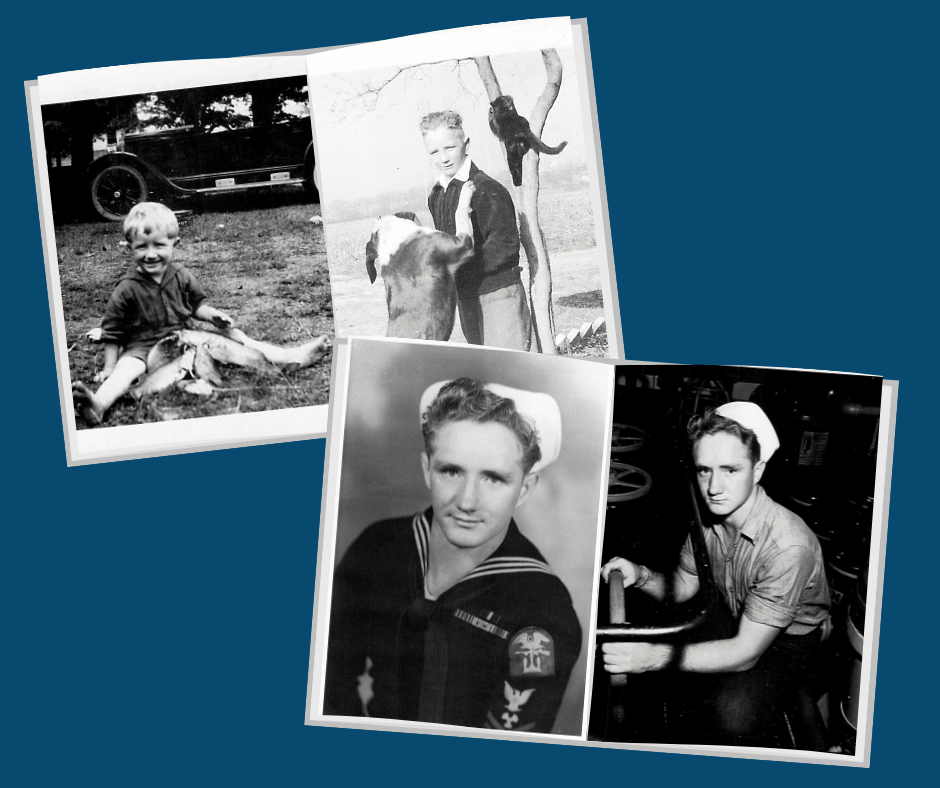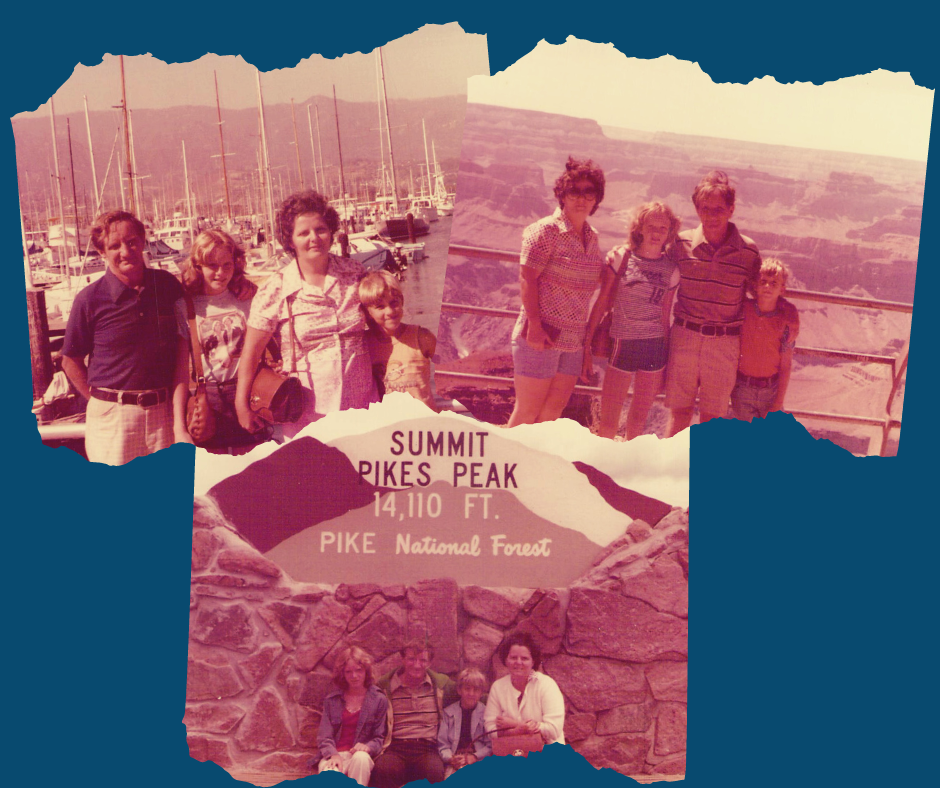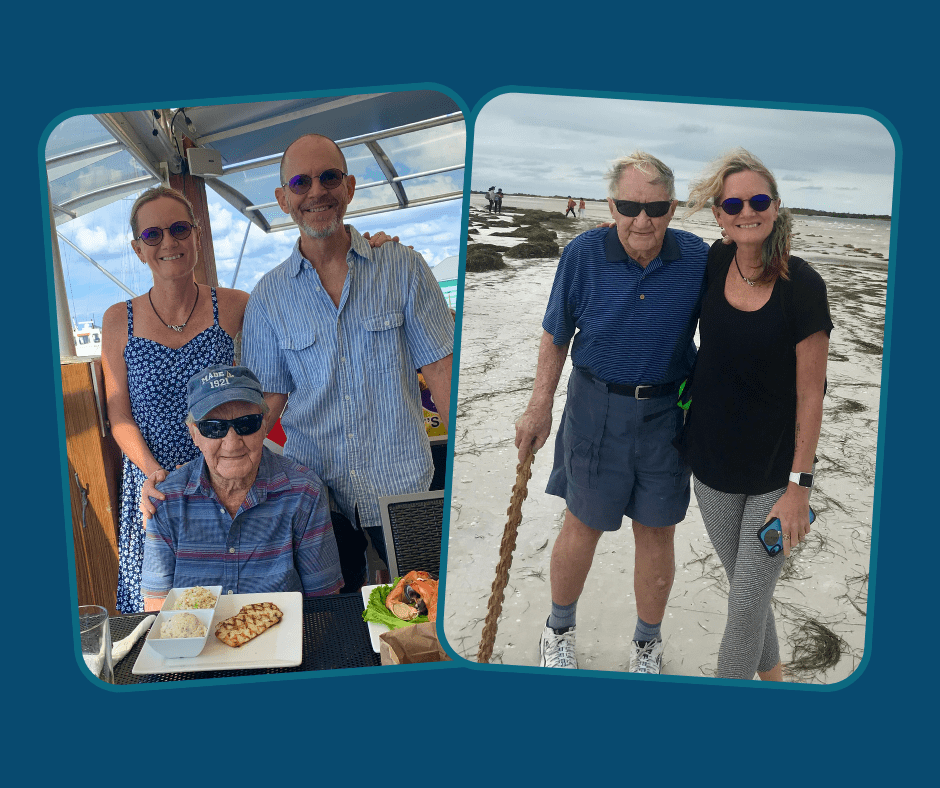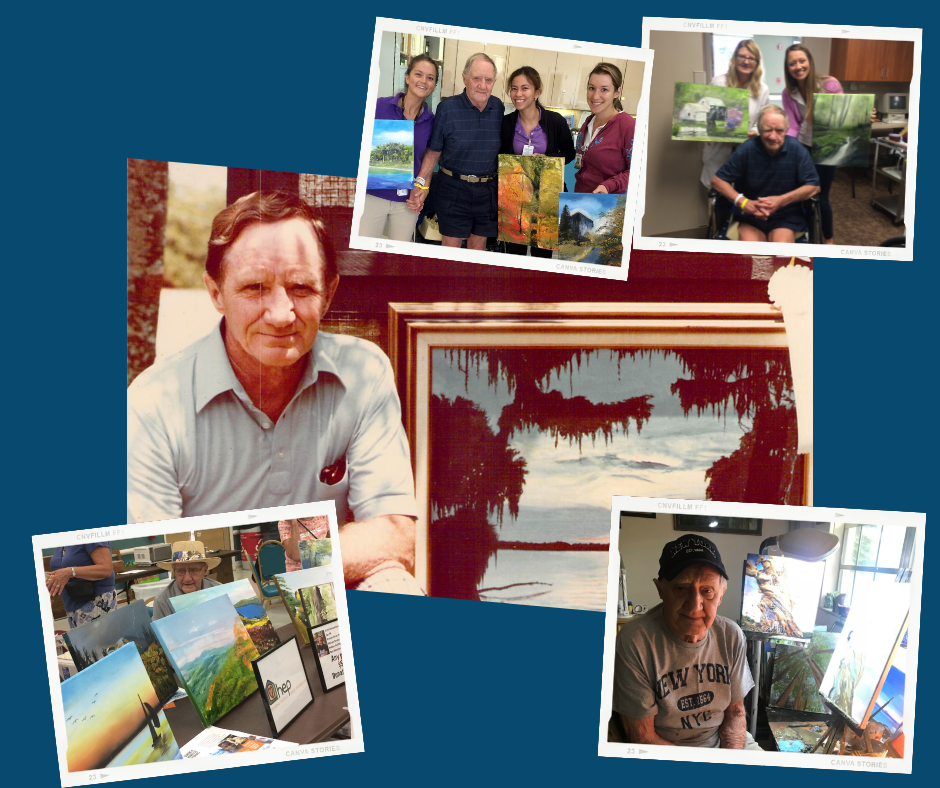Dad, a teacher by profession and a lifelong learner, was always there to offer advice and support throughout my upbringing. His values were firmly established in his early days on a farm and his character shaped during his time spent in the navy in World War II. While he was firmly set in his values, he was equally open-minded, curious by nature, and genuinely interested in people.


As a teacher, Dad had flexible summers and we could take long trips. The most memorable of these was a round trip from Florida to California in a used “sleeps four” camper that barely slept two. Mom, who was more of a city girl, reluctantly agreed to the trip, but spent most of her time just making sure that my brother and I didn’t kill each other in the backseat. And while Dad made sure to document the whole trip in photos, I built my postcard collection.
Those summer adventures left an impression on me and I spent my adult years on the move always looking to see what was around the next corner, until my path and Dad’s converged again. On this new journey, our roles transitioned from Dad and daughter to caregiver and care recipient, and we both found ourselves at a low point in our lives. As we navigated our losses, Dad, directly and indirectly, continued to teach me life lessons during our time as travel partners on the caregiving journey. Here are five of those lessons that I learned from Dad on our last journey together.
1. Boundaries work both ways, and safety and dignity are not mutually exclusive.
Dad was relentless in his quest to teach me this lesson, and eventually, I came to agree that certain risks were Dad’s to take, even if it meant we might all participate in the consequences. In my attempt to keep Dad safe, I suppressed his spirit of adventure, the same spirit he had instilled in me.
We were both feeling trapped, resentful, and trying to break free from the chains of our new roles. I had set boundaries to protect my limits but realized that Dad also had a right to establish boundaries. It wasn’t until I agreed to help him fulfill his desire to jump out of a plane on his 94th birthday that I finally learned this lesson.
2. When I realized that we were both on a journey to a common destination, we could align our itineraries.
Despite the fact that Dad had been a caregiver many times over, when I was explaining that I helped other family caregivers, he was confused by the term caregiver. He said, “If you’re the caregiver, what am I? The care victim?” We both laughed until it brought us to tears.

I realized that just as caregiving did not come naturally to me, being cared for did not come naturally to Dad. Understanding that the destination of this last journey together was Dad’s end-of-life helped me better align my path with his and focus on making positive memories.
3. Winning is losing when fear and ego lead the conversation, so why not lead with curiosity.
At the beginning of my caregiving journey, the conflicts ranged from minor skirmishes to epic battles. One day I walked in to find Dad on a six-foot ladder trying to Velcro one of his paintings to the ceiling. After I made sure he got safely down the ladder, I asked, “So Dad, why are you putting a painting on the ceiling?” I could see that Dad’s motives were inspired by dignity, independence, and a desire for control and that my motives were most often inspired by protection and fear for Dad’s safety. But in asking that question, I found that when I replaced resistance, fear, and anger with curiosity I could better understand what drove Dad’s decisions.
4. We are where we are supposed to be, and the greater the challenge, the greater opportunity for growth.
At first, I viewed caregiving as an unwelcome side trip and put a lot of effort into getting back to my original journey. As time went by, I found that paddling against the current was exhausting and keeping me from stepping into the flow of my caregiving journey.
One day it hit me like a bolt of lightning that I hadn’t strayed from my scheduled journey. I realized that being Dad’s caregiver was part of it. When I embraced my place on the path next to Dad, I was able to experience the growth and learning that only a great challenge can offer. Gratitude for the challenge helped me shift from “I have to be a caregiver” to “I get to be a caregiver.”
5. Stay connected to your passions. They are self-care.
Dad made oil paintings of landscapes despite the fact that his eyesight was going. I called it his Impressionism phase. He would get lost in paint and canvas, and this activity brought him so much joy.
I would note with amusement, awe, and a touch of jealousy that Dad could be carefree for hours, whereas my mind was always full of worry. But it also taught me that I, too, was allowed to get lost in activities that brought me joy. I also recognized that Dad’s painting sessions were a form of meditation and self-care that helped him thrive into his 99th year.

Dad challenged me to be a better caregiver and, in the process, taught me lessons that will serve me well as I continue through life. You can read more about our journey and the strategies that helped us both thrive in, Navigating the Caregiver River: A Journey to Sustainable Caregiving and listen in the Self-Caregiving Strategies Podcast.
Schedule Theresa Wilbanks to speak on caregiving and empower the caregivers in your workplace or community with the 12 Sustainable Caregiving Strategies.
Advice offered is for general information only; please contact your healthcare team, legal or financial advisors to guide your particular situation.

